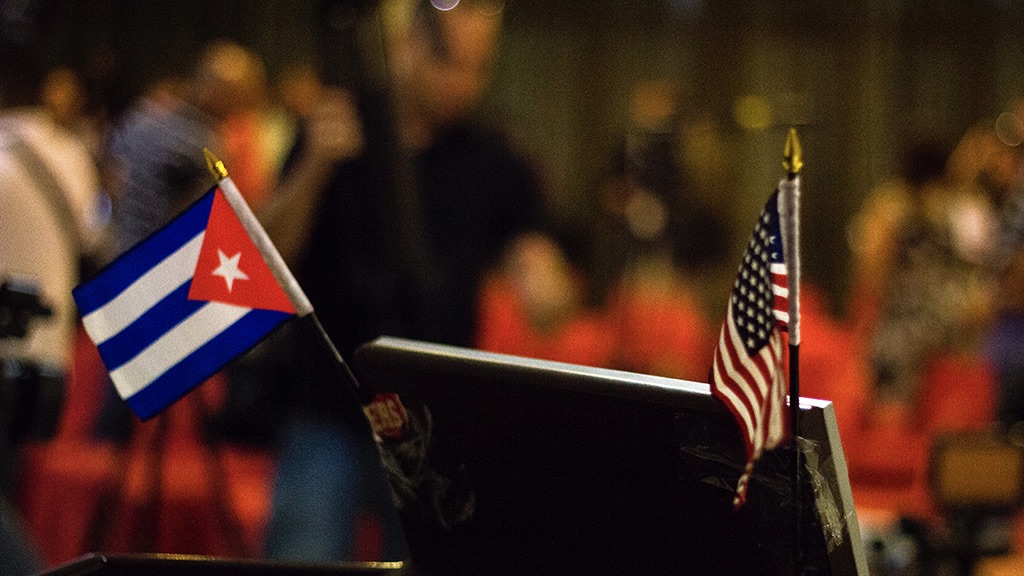In less than a week, seven US senators from both parties have presented two bills related to the island.
On February 5, Oregon Democratic Senator Ron Wyden, Chairman of the Senate Finance Committee, introduced, along with colleagues Patrick Leahy (D-Vermont) Richard Durbin (D-Illinois) and Jeff Merkley (Oregon) 2021 US-Cuba Commerce Bill, which seeks to end the embargo and normalize trade relations with the island.
On the 9th, his colleagues Bob Menendez (D-New Jersey) and Senate Foreign Relations Committee Chairman Marco Rubio (R-Florida), the aforementioned Durbin, and Ben Cardin (D-Maryland) presented a resolution proposal expressing solidarity with the San Isidro Movement and other artists and activists who have been victims of repression by the Cuban Government for their demands for greater artistic and expressive freedom in Cuba.
At first glance, they would seem to be totally disparate proposals. A closer look, however, reveals that their texts and signatories feature interesting overlaps that represent opportunities for the development of a new policy towards Cuba based on bipartisan consensus.
Section 5 of the 2021 US-Cuba Trade Act bill, in Subsection a, Numeral 2, proposes that "the president should take all the necessary steps to further negotiations with the government of Cuba ... in order to ensure the protection of internationally recognized human rights." Similarly, Section 6, Subsection a, Numeral 1 states that it is the sentiment of the Congress that the United States should promote democratic change and economic reform by normalizing relations with Cuba.
Meanwhile, the solidarity resolution with the San Isidro Movement also expresses this Congressional opinion, calling on the Cuban authorities to cease human rights violations, and for the immediate repeal of Decrees 349 and 370 and other laws violating the freedom of expression. The document also calls on the Secretary of State to condemn the persecution, threats, and intimidation of Cuban artists and journalists.
In other words, both political texts, despite their different purposes and approaches, agree that the defense of universal human rights and the promotion of democratic change should be cornerstones of US policy towards Cuba.
The documents also have a common author: Democratic Senator Richard Durbin, from Illinois. Durbin, who has been an outspoken defender of Obama's policy towards Cuba, as well as a critic of repression on the island, has adopted on this occasion a stance that breaks with the conflicting positions that have characterized the United States' policy towards the island: opposing the embargo and favoring a process of negotiations with the Cuban Government to normalize bilateral relations vs supporting the policy of sanctions against Cuba, condemning human rights violations and, without half measures, showing solidarity with the victims and actors in civil society fighting for a more democratic society.
It is equally promising that Bob Menéndez and Marco Rubio, Cuban-American senators from different political parties, but known for their critical positions towards the Cuban regime, are co-authors of a resolution that urges the Cuban authorities to engage in a process of genuine dialogue with the members of the San Isidro Movement and other artists and activists. This call for dialogue, although aimed at internal actors (the Cuban government and pro-democracy activists), recognizes that the Cuban government is a valid interlocutor in any political negotiation process, and it endorses dialogue as a legitimate tool to resolve the conflicts between the Cuban regime and the country's people. Thus, following this logic, could such dialogue also serve as a framework for the United States Government to discuss all its differences, firmly and directly, with the Cuban Government?
It is important to explore these points of agreement in American positions towards Cuba, because, based on them, a new policy towards the island could gradually be forged, one based on bipartisan consensus and that does not sacrifice an assertive demand for human rights and democratic change for the sake of rapprochement with Havana.
The Cuban pro-democracy community, both on and off the island, should encourage a search for consensus in the formulation of policies towards Cuba by all the relevant actors in the international community.
